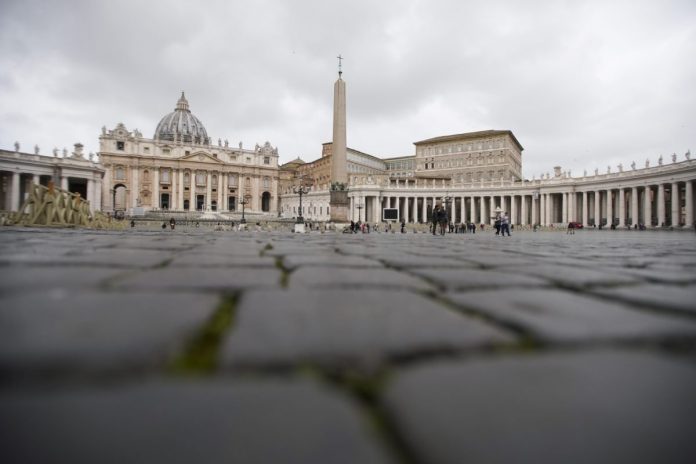The Rev. Thomas J. Reese, a Jesuit priest, is a Senior Analyst at RNS. Previously he was a columnist at the National Catholic Reporter (2015-17) and an associate editor (1978-85) and editor in chief (1998-2005) at America magazine. He was also a senior fellow at the Woodstock Theological Center at Georgetown University (1985-98 & 2006-15) where he wrote Archbishop, A Flock of Shepherds, and Inside the Vatican. Earlier he worked as a lobbyist for tax reform. He has a doctorate in political science from the University of California Berkeley. He entered the Jesuits in 1962 and was ordained a priest in 1974 after receiving a M.Div from the Jesuit School of Theology at Berkeley.
The Christian faith is not just a personal commitment, it is also a communal experience. From the very beginning, Christians have gathered to share the Word of God and break bread in confined spaces. They drank from the same cup and shared a holy kiss. They also cared for the poor and the sick.
All of these Christian practices are now seen as ways that the coronavirus can spread through populations. That is why the coronavirus is so threatening, not only physically but also spiritually.
In a pre-scientific age, we might carry on and ask God to protect us. Many saints died caring for plague victims. Aloysius Gonzaga, patron saint of the Jesuit high school where I live, died in 1591 at the age of 23 while caring for victims of the plague in Rome.
Today, public health officials recommend that we put distance between ourselves and others so as not to spread the virus. At first blush, this “social distancing” sounds un-Christian, but we need to listen to medical experts. As with doctors, the first rule of a Christian at this time is “Do no harm.” That means not doing anything that might spread the virus to others.
In the time before germs and viruses were understood, people blamed strangers, Jews and witches for sickness. Anyone who was different could be the target of people’s fear. The public was also offered potions that often caused more harm than good. Even today, conspiracy theories abound and fake cures are sold to the gullible. Again, we need to listen to medical experts and not to conspiracy theorists who use any crisis to make money or stir up hatred and division.
The experts tell us that the best ways to avoid the virus are truly simple:
Like Naaman, the Aramean general we read about in the Bible’s Second Book of Kings, who scoffed when the Prophet Elisha told him to wash seven times in the Jordan to cure his illness, we don’t take simple solutions seriously. But we need to listen to Naaman’s servants, who challenged him by saying, “If the prophet told you to do something extraordinary, would you not do it? All the more since he told you, ‘Wash, and be clean’?”
Since Catholics gather to celebrate the Eucharist every Sunday, they have had to take preventive measures to avoid the spread of the virus. In China and Italy, services have been canceled and churches have been closed at the advice of public health officials.
Source: Religion News Service
All Content & Images are provided by the acknowledged source



